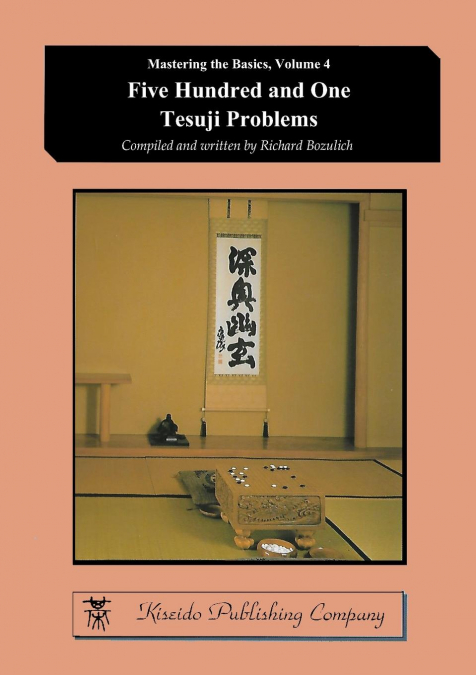
 Librería Perelló (Valencia)
Librería Perelló (Valencia)
 Librería Aciertas (Toledo)
Librería Aciertas (Toledo)
 El AlmaZen del Alquimista (Sevilla)
El AlmaZen del Alquimista (Sevilla)
 Librería Elías (Asturias)
Librería Elías (Asturias)
 Librería Kolima (Madrid)
Librería Kolima (Madrid)
 Donde los libros
Donde los libros
 Librería Proteo (Málaga)
Librería Proteo (Málaga)
Tesujis are skillful moves that accomplish some clear tactical objective, such as capturing stones or a group, rescuing one of your own groups, linking up your stones, separating your opponent’s stones, making good shape, etc. There are two approaches to presenting tesujis problems. One approach is to collect problems according to the objective that tesujis accomplish. The other is to collect problems according to the kind of tesuji used. In this book the emphasis is on the latter. There are about 45 different kinds of moves that make up tesujis. Each of these moves has a Japanese term that describes them. Some of these tesujis occur quite frequently in games, while others are seldom seen. In this book, examples of every kind of tesuji are presented. The more common ones occur in numerous problems, but even the less common ones are represented a number of times. Every tesuji presented in this book can be found among the first 50 problems. All of these different tesujis are scattered throughout the book. Just as in a game, one never knows what kind of tesuji will appear. It may be easy to find it, but often it is hard; it might be a quite common tesuji, but it could be one of those that rarely occur. Going through the 501 tesujis in this book will be like getting a tesuji experience in 501 games. However, in a game, many tesujis will go by unnoticed; in this book, each problem will be a learning experience. As you work your way through this book, you will find that the tesuji that solves the problems will occur to you more and more quickly. Once you have reached this level, the same thing will start happening in your games.